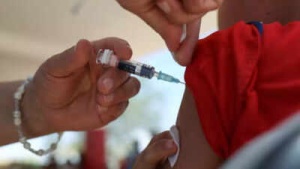Donating blood is a selfless act that saves lives. However, it can also lead to side effects such as fatigue and anemia if you don't take proper care of your body. Preparing your body with the right foods and practices before and after donating blood is essential to minimizing risks and ensuring a smooth, safe experience. Proper hydration and a diet rich in iron are key components.
According to health experts, certain foods can significantly improve your donation experience.
Iron: Iron is crucial for hemoglobin production, which carries oxygen throughout the body. Maintaining healthy iron stores is vital. There are two types of dietary iron:
To boost iron levels, consume heme iron-rich foods such as:
These foods can help reduce the risk of iron deficiency anemia after donation.

Vitamin C: Vitamin C enhances the absorption of nonheme iron. Consume vitamin C-rich foods like:
Pairing these foods with nonheme iron sources will increase iron absorption.


To ensure a successful blood donation, avoid these substances:
Alcohol: Avoid drinking alcohol 24 hours before donation. If consumed, drink extra water to compensate for dehydration.
Fatty foods: Avoid foods high in fat (e.g., fries, ice cream) as they can affect blood test results.
Iron blockers: Limit foods that reduce iron absorption, such as:
Aspirin: If donating platelets, avoid aspirin for 48 hours before donation.



Newer articles
Older articles
 Gavaskar Calls for Kuldeep Yadav's Inclusion in Second Test Amid Bumrah Fitness Concerns, Cites Edgbaston Spin Advantage
Gavaskar Calls for Kuldeep Yadav's Inclusion in Second Test Amid Bumrah Fitness Concerns, Cites Edgbaston Spin Advantage
 Indian Astronaut Shukla Arrives at ISS, Ushering in New Era for Space Program
OR
India Celebrates as Shukla Reaches ISS, Advancing Ambitious Space Goals
Indian Astronaut Shukla Arrives at ISS, Ushering in New Era for Space Program
OR
India Celebrates as Shukla Reaches ISS, Advancing Ambitious Space Goals
 Rishabh Pant Revolutionizing Cricket, Says Greg Chappell
Rishabh Pant Revolutionizing Cricket, Says Greg Chappell
 Toxic Workplace Warning Signs: Spot the Red Flags Early
Toxic Workplace Warning Signs: Spot the Red Flags Early
 Global Immunization Crisis: Millions of Children at Risk as Vaccine Coverage Lags, Study Reveals
Global Immunization Crisis: Millions of Children at Risk as Vaccine Coverage Lags, Study Reveals
 Moto G54 Price Slashed in India: Check Out the Discounted Rates and Specs
Moto G54 Price Slashed in India: Check Out the Discounted Rates and Specs
 Indian Cricket Star Mukesh Kumar and Wife Divya Singh Announce the Arrival of Baby Boy
Indian Cricket Star Mukesh Kumar and Wife Divya Singh Announce the Arrival of Baby Boy
 IRCTC Launches AI Chatbot 'AskDisha 2.0' to Revolutionize Train Ticket Booking and Customer Service
IRCTC Launches AI Chatbot 'AskDisha 2.0' to Revolutionize Train Ticket Booking and Customer Service
 Cummins Lauds Australia's Dominant Start to WTC Campaign After West Indies Series Win
Cummins Lauds Australia's Dominant Start to WTC Campaign After West Indies Series Win
 Smith Targets Test Return After Innovative Baseball Cage Rehab in New York
Smith Targets Test Return After Innovative Baseball Cage Rehab in New York